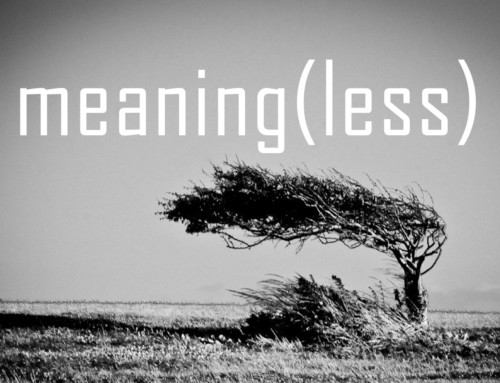I’ve tried to live by the old maxim: In essentials, unity; in non-essentials, liberty; and in all things, love. But for many years I wondered where the “essentials” end and the “non-essentials” begin. What exactly are the essentials? Some doctrines are easy to identify, but others not so much. Perhaps you have wrestled with some of these same ideas. With that in mind, the following represents my humble attempt to categorize and prioritize many of the various doctrines of the Christian faith. I’m not saying that I’ve nailed it. But I have at least determined to put something in writing, something I can work with. (I should stress that this post represents my own ideas. I am not representing the views of my church in any official capacity.)
This effort flows from a challenge given by Dr. John Hammett to my Baptist History class while I was in seminary, and I have come to see the practical value. It has been incredibly helpful for me to think through the importance of these various doctrines, not only for my own understanding but also in helping me assess how I should engage others who differ with me on these various doctrines. For example, if another Christian believes that all the spiritual gifts are in operation today and I disagree, that’s okay, because that is a doctrine that we can discuss within the pale of Christian orthodoxy (i.e., accepted Christian beliefs). But if I encounter someone who claims to be a Christian while denying the essential doctrine of the full deity of Christ, then I know that I must seek to win that person to the true knowledge of the gospel.
This is, by no means, an exhaustive list of doctrines, but it’s a start. I would also say that I invite critique and dialogue. I strongly believe this is something worthy of our thoughts and reflections. One thing that I realized upon reflection is that I couldn’t neatly categorize these various doctrines into just two groups, i.e., essentials and non-essentials. I had to expand the categories.
So, here’s how it works. I have identified five categories to classify these various doctrines. Category I and Category II, Essentials I and Essentials II, respectively, both relate to ultimate salvation. The difference between the two is that the former must be affirmed immediately while the latter must never be ultimately denied. Essentials I represent the most basic truths of the gospel message. Essentials II are related but usually are affirmed and understood later in the Christian life. Category III, I have labeled Vitals. These doctrines represent what I believe are vitally important to the spiritual health of the believer, but they are not “deal breakers.” Every Christian should affirm and defend these, but someone may be wrong or inconsistent in regards to these matters and still may be a genuine believer in Christ. Nevertheless, to deny any one of these puts the professing believer on a slippery slope. Thus, these doctrines should be taken very seriously and denials should send up “red flags” resulting in a careful reengagement with the central truths of the gospel. Category IV represents the non-essentials of the faith. These doctrines are important, but genuine believers take many different views on these issues. As long as the truths of Categories I and II are affirmed, these believers may enjoy fellowship with one another even though they differ on their understanding of these various doctrines. Category V represents the particular distinctives of Baptists, the denomination to which I belong. Other denominational distinctives could be included, but the point is that none of these denominational distinctives rise to the level of a Category I or II essential. Nevertheless, even though denominational distinctives are non-essentials for salvation, they are still important in distinguishing and clarifying the beliefs of a particular denomination.
CATEGORY I: ESSENTIALS I: What must I believe in order to be considered a genuine professing believer in Christ? (One must affirm and believe these essential truths of the gospel or one cannot be considered a genuine Christian.)
- God as Creator (to whom we are morally accountable)
- Sinfulness of Man
- Full Humanity of Jesus Christ
- Full Deity of Jesus Christ
- Sinlessness of Jesus Christ
- Penal, Substitutionary Atonement (i.e., Christ died “for our sins”)
- Bodily Resurrection and Exaltation of Jesus Christ (in a “transphysical body”)
- Personal Repentance and Faith
- Justification by Faith Alone (sola fide)
CATEGORY II: ESSENTIALS II: What must I eventually affirm and never ultimately reject if I am to maintain my status as a genuine professing believer in Christ? (Ultimately deny one of these and one cannot be considered a genuine Christian.)
- God as Trinity, i.e., one God who exists as three co-equal, co-eternal Persons
- Omnipotence, Omniscience, and Omnipresence of God
- Virgin Birth of Jesus Christ
- Second Coming of Jesus Christ
CATEGORY III: VITALS: What must I believe in order to stand firm and protect myself from falling? (These are vital to spiritual health. They should be affirmed, fought for, and defended; however, denial does not necessarily mean one is not saved. Still, deny one and it puts you on a slippery slope.)
- Inerrancy of Scripture
- Authority of Scripture (Special Revelation)
- Canon of Scripture
- Exclusivity of the Gospel
- Doctrines of Grace (i.e., Calvinism: Total Depravity, Unconditional Election, Limited Atonement, Irresistible Grace, Perseverance of the Saints)
- Indwelling of the Spirit at Conversion
- Biblical Manhood and Womanhood
- Bible Translations
- Lordship Salvation
- Eternal Punishment in Hell
- Existence of Angels/Demons/Satan
CATEGORY IV: NONESSENTIALS: What are the issues considered acceptable differences within the sphere of Christianity? (Believers may disagree on these issues and still be considered brothers and sisters in Christ.)
- Eschatology
- Spiritual Gifts
- Baptism and Lord’s Supper
- Ecclesiology
- Old Earth vs. New Earth Creationism
- Covenant Theology vs. Dispensationalism
- Women Deacons
- Worship Styles
- Use of Alcohol
- Sabbath Observances
- Missiology
- Church and Culture
CATEGORY V: DENOMINATIONAL DISTINCTIVES: What must I believe in order to be considered, in this case, a Baptist? (Believers should hold to these with passion, but humility. None of these rise to the level of a Category I or II essential.)
- Authority of the Bible Alone
- Believer’s Baptism by Immersion
- Regenerate Church Membership
- Autonomy of the Local Church
- Separation of Church and State
- Priesthood of All Believers
- Congregational Church Government
In sum, again these categories represent just one humble attempt to classify some of the various doctrines of the Christian faith. I realize this document may be controversial, and I do not expect everyone to agree with me. I also realize that I did not defend my reasons for placing a particular doctrine where I did. (That is way beyond the scope of this post.) Nevertheless, it was just good for me personally to think these things through and put them on paper, and if this document has motivated you to think about the importance and priority of these doctrines more critically as well, then I believe this has been time well spent. The bottom line is that the essentials start and end somewhere, and if the essentials represent the gospel, we better have a good idea what they are. It’s just too important.


